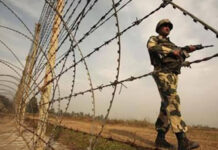EDITORIAL
Should Bangladesh be closing down schools?

When schools, colleges and universities are being shut down across the globe to contain the spread of coronavirus, Bangladesh, it appears, is struggling to institute basic precautionary measures in its educational institutions. The 10 schools surveyed in the capital by The Daily Star were in woeful conditions: most had no soaps, poorly maintained toilets, children sitting and playing in close proximity, no clear instructions of what steps children ought to take in the schools to stay safe, and little monitoring of whether children are exposing themselves to unnecessary risks. We simply cannot fathom why we are keeping the schools open if we cannot even guarantee soaps for students in the toilets, and when the virus can so easily spread from one student to another—and by extension their parents, extended family and the wider community.
The Directorate of Secondary and Higher Education (DSHE) has asked all students of secondary schools and colleges to wash their hands frequently, but teachers and administrators are asking whether it is practical for schools to be able to provide unlimited hand wash and soaps for all, without additional allocation to its budget. Government officials, it appears, are not worried at all about the scanty provisions in schools, with a senior official claiming that the absence of handwashing arrangement was not “abnormal” and that “parents should take steps.” Meanwhile, DSHE has also advised students to avoid public gatherings. Wise words from the DSHE, but we wonder, don’t schools, too, fall under the definition of public gathering?
Due to the coronavirus outbreak, 39 countries have announced or implemented school and university closures as of March 11. Of them, 22 countries have shut schools nationwide, impacting almost 372.3 million children and youth, according to Unesco. While we understand that the situation has not yet reached alarming levels in Bangladesh, giving us some scope to take measured steps, we cannot ignore that it is a pandemic and that we may not be safe for too long. We ought to learn from the mistakes and best practices of other countries and take proactive rather than reactive measures to control the spread of the virus. The government should consult health and education experts and take immediate steps to ensure that students stay safe and do not become carriers of the virus.









